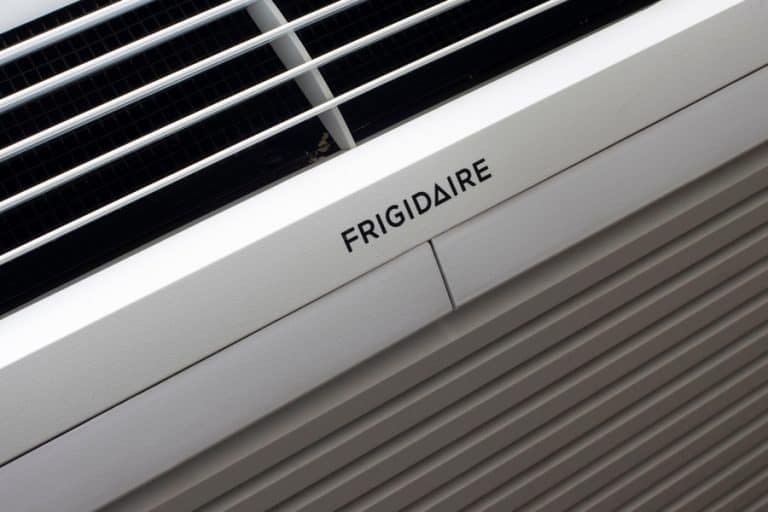
Seeing an error code can feel like decoding a secret message. The “F1” code on a Frigidaire air conditioner usually points to a malfunction in the indoor ambient temperature sensor. In simpler terms, it means that the sensor responsible for detecting the room’s temperature isn’t working as it should. When this sensor hiccups, it can mess with your air conditioner’s ability to cool properly. But is it as scary as it sounds? Let’s dive deeper to understand what’s behind this code and what steps you might take next.
Understanding the F1 Error Code
So, what does the ambient temperature sensor do, and why is it so important? Think of it like the thermostat in your home. It’s supposed to read the room temperature and send this information to the air conditioner’s brain. Based on this data, your AC decides whether to blast more cold air or take a break. If this sensor isn’t doing its job because of an error like “F1,” your unit might end up running inefficiently, either cooling too much or not enough.
Now, you might be asking, “Why does the sensor malfunction?” Well, just like any other gadget, the sensor can wear out over time or be affected by dust, dirt, or even manufacturers’ defects. Sometimes, it’s just a matter of bad luck, like when your favorite appliance gives up the ghost at the worst possible time. But rest assured, understanding this is the first step to solving it.
Once the sensor goes haywire, ignoring the error could lead to more than just discomfort. It could mean higher energy bills and more strain on your AC unit, potentially leading to more severe issues down the line. Not to alarm you, but addressing this promptly could save you a ton of hassle and cash.
Should You Ignore the F1 Error Code?
Alright, let’s tackle the big question: *Can you ignore it?* Honestly, ignoring the F1 error code isn’t the best idea. Why? Because a malfunctioning sensor affects how your air conditioner operates. It’s like driving a car with a broken fuel gauge — you might be able to get by, but it’s not optimal and could lead to bigger problems.
If you let it slide, your air conditioner might run inefficiently or struggle to maintain the desired temperature. Over time, this can strain the system, which could result in costly repairs or even necessitate a complete replacement earlier than expected. Plus, a consistently misguided temperature reading can mean your space isn’t as comfortable as you’d like, defeating the purpose of having an air conditioner in the first place.
In short, while it might seem tempting to just shrug off that nagging code, attending to it sooner rather than later can prevent additional issues. It’s like addressing a small leak before it turns into a flood. The good news is that dealing with it doesn’t have to be daunting. Let’s explore some solutions.
How to Fix the F1 Error Code
First things first, you might want to try a simple reset. Unplug your air conditioner for a few minutes and plug it back in. This can sometimes clear minor glitches. It’s like when your computer gets a little sluggish, and you just need to restart it to set things right. If the error persists, then it’s time for a deeper dive.
Check the sensor itself. You don’t need to be an expert; just open the front panel (after ensuring the unit is unplugged) and locate the sensor. If it’s covered in dust, gently clean it with a soft brush. Often, grime or debris can interfere with its function. Reconnect everything and see if this resolves the issue.
Still seeing that pesky code? It might be time to call in a professional technician. They can perform a more thorough inspection and offer a fix. Think of them like a doctor for your AC – they know what to look for and how to handle the situation without causing further damage. While it might cost a bit upfront, it could save you money in the long run.
Preventing Future Error Codes
Wouldn’t it be great if you could avoid these issues altogether? While there’s no surefire way to prevent all errors (unfortunately, ACs aren’t invincible), some maintenance practices can help. Regularly clean or replace the air filters. Dirty filters can lead to various issues, not least because they force your AC to work harder, which can wear down other components over time.
Also, schedule regular check-ups for your AC unit. Having a technician give it a once-over can catch potential problems before they escalate. It’s similar to going for a yearly physical — proactive measures can make a world of difference.
Finally, keep an eye on the general state of your AC. Listen for unusual noises, and be alert to any weird smells or changes in performance. These can be early warning signs that something isn’t quite right.
In wrapping things up, while you might feel inclined to ignore the Frigidaire air conditioner F1 error code, doing so isn’t the best bet. Addressing it quickly not only safeguards your comfort but also extends the lifespan of your air conditioning unit. So the next time that little code flashes on your display, you’ll know exactly what to do!